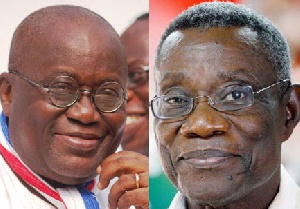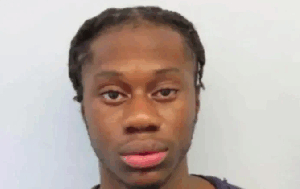That this year’s elections will be a straight fight between the ruling NDC and the opposition NPP is not a difficult thing to predict. The CPP and PNC will not be able to sufficiently shake themselves up to offer a strong third alternative even if these two Nkrumaist parties, against all odds, unite to fight the elections on one platform. This means the presidency will also be a direct fight, yet again, between Mills and Akufo-Addo. All others will just be also runs. What difference will it make to the life of the ordinary Ghanaian if it is Akufo-Addo rather than Mills who wins? What reasons would anybody have for supporting one of these 67-year old gentlemen rather than the other?
There are no truly ideologically based parties in our country. There has also never been a party built solely on religious grounds. The first political parties in our country were tribal based and fought for their parochial interests without any ideological slogans. Nkrumah’s CPP came nearest to a party that was based on a specific ideology. But the CPP has never really been a truly Marxist party. Nkrumah defined the ideology, put his name on it and tried to explain it, unsuccessfully, to the masses. Today’s CPP is struggling without its revered leader. There has been no one able to take the place of Nkrumah. Whatever ideology was left after his demise has never been enough to sustain the party which has, gradually, become like any other party in Ghana.
The NDC claims a social democratic agenda but many of the followers of the party, including the party high-ups, don’t even know what social democracy entails. But they will attend every conference called by European Social Democrats. The tradition from which the NPP is built may tout its place on the right but you are never going to hear any of the party ideologues quoting Adam Smith or Joseph Schumpeter. All the parties are hanging on to personalities, none of whom is even charismatic, rather than differences in ideas, to sell their programmes to the electorate. And the programmes are increasingly looking alike. This is the essence of the ideological bankruptcy in contemporary Ghanaian politics.
In such a situation, it will seem foolish to try to elevate one of the presidential candidates over the other. This does not seem warranted on the basis of ideology. There are, however, many non-ideological reasons why one may prefer one of the parties or presidential candidates to the other.
If Akufo-Addo comes from your village and you are somehow near him, you will be rooting for him to win so that you can bask in the reflected glory his victory gives you. It can give you a personal sense of satisfaction of sorts. Whether that will translate into a higher standard of living for you is a different thing. If you have joined the NDC and you are in the party hierarchy and will get some post or maintain one which you already have, you will vote for Mills and do whatever you can to let him win. His victory has a direct bearing on your personal fortunes. If you have a friend standing as a parliamentary candidate and you can also get something from his victory, you will vote for that candidate and try to convince yourself that his party’s programme is the best for the country. If you hate Rawlings because of the excesses of the early parts of his regime, which excesses adversely affected your family, you will be interested in seeing to it that a party that is built on Rawlings’ so called revolution does not win. You will support NPP, not because you think the party will deliver Ghana from its woes even though you will try to convince yourself that it can. You will vote for NPP because of your hatred for Rawlings.
In Ghana, the idea of voting for a particular party which will bring a particular development project to your region or town does not really exist. Politicians make promises during campaign periods that they do not fulfil. The citizenry has learned not to expect much from the votes they cast. The only satisfaction they may enjoy is in the act of voting itself and, perhaps, some perverse joy in seeing an unpopular office holder losing his job. There are no powerful lobby or advocacy groups in the country, apart from the trade unions, that can exert pressures on governments, outside of party frameworks, to bring development projects to specific areas or pursue policies beneficial to specific constituencies of voters. Powerful individuals near the centres of power may succeed in wrestling projects to their constituencies. Areas without such people will be mostly without.
In the ideal situation, EVERY district or constituency in the country should, as of right, be provided with certain basic amenities, NO MATTER WHICH PARTY IS IN POWER! This means that the citizen does not need to vote for a particular person or party in order to get a specific basic need – clean water, electricity, decent roads, basic schools and access to good medical care. The availability of these essentials to the citizenry cannot be a partisan political matter. But we live in a country whose basic needs far outstrip the resources available to satisfy a good proportion of these needs. That is why the fight for these scarce resources can be pursued to the death.
This pursuit is fiercest among the political elite who stand to benefit or lose directly from specific outcomes of elections. Each of the candidates has many hangers on hoping to ride the race to glory. For the party that wins, there will be lucrative positions to hand out including coveted ambassadorial postings. In Ghana, there is a political element in appointments to top civil and public service positions even if the positions are of such a technical nature that the choice should be devoid of partisan politics. There are businessmen and women whose contracts are obtained by the patronage system put in place by the party that wins. Many of these may have contributed to the campaign kitties of the parties and will want to recoup these funds – with something to spare. Then there are the thugs who the party leaders hire to do their dirty work for them who may hope for increased remunerations if their paymasters win. These are the people for whom it will really matter if it is Mills, rather than Akufo-Addo, who wins (or the other way round). For the cowering masses who form the greater percentage of the populace, those whose only participation in the political process is to go to a polling booth once every four years and put a piece of marked paper in a box, it will basically be life as it has always been – wretched, brutish and short! Whatever positive changes they may notice in their lives will be minor and, anyway, can equally be provided by any party.
The Ghanaians staying abroad cannot do much to influence the outcome of the elections. The fact of their stay abroad alone disenfranchises them. Many of them have foreign passports which fact also disenfranchises them in the unlikely event that they are allowed to vote abroad. Ghanaians with foreign passports must also be holders of the green dual citizenship card to be regarded legally as dual citizens. Dual citizenship does not accrue automatically to any Ghanaian with a foreign passport. It must be applied for, and approved, in Ghana.
Some are deciding to travel home to vote. They may schedule a long term plan for holidays to coincide with the elections. But many Ghanaians living abroad will not go home for the sole purpose of voting. Indeed, they will even avoid going home during the election period for fear of being caught up in some election violence. All those foreign based writers on Ghanaian websites who write lengthy articles extolling the virtues of their preferred candidate while exposing the vices (actual and imagined) of the others will not influence the outcome of the elections. The middle class Ghanaians at home who may read these articles do not need the articles to tell them how to vote. The masses in the villages and slum areas whose votes are going to matter the most don’t read things on websites. The best these Ghanaians abroad can do will be to call up their relatives at home and try to convince them to vote one way or the other. They may use the remittances they send them as leverage in this endeavour but there is no way for them to ensure that their promptings will be followed since it will be a secret ballot in which your left hand will not know what your right hand is doing. Anyway, the cumulative effects of such efforts will be minimal.
Ghana has now been officially classified as a lower middle income country even if we have not quite met our Millennium Development Goals. If our country is genuinely poised to make rapid advances economically and socially, it won’t matter whether it is Mills or Akufo-Addo who supervises those advances which will still come propelled by the inertia that accompanies certain constellations of events. Change may stall with gains clawed back now and then but after a certain critical level, it cannot be prevented. A party in government must perform extremely poorly (likely) or extremely well (most unlikely) to make any significant difference in the life of the average citizen. So far in the fourth republic, we have not seen any of these extremes. The two parties that have governed us have equally put up mediocre performances. There is, as at now, absolutely no indication that this state of affairs will be altered in the near future.
The choice will boil down to the perceived differences in the personal characters of the two leading candidates, in particular for the discerning, which of them has the greater guts to stamp out corruption in the higher echelons of government. It will require a president with near-dictatorial powers to effectively do that. And no Ghanaian wants a dictator to rule over him anymore – not even a benign one!
All we have left is just to hope for peaceful and transparent elections so that whoever wins does so fairly and unambiguously. After all, for the greater mass of Ghanaians, it won’t matter who that person is. My aged mother in the village tells me she is not going to vote for anybody. She has been voting since before independence and cannot tell what difference it has made to her as an individual. I understand her.
Kofi Amenyo (kofi.amenyo@yahoo.com)
Opinions of Wednesday, 18 January 2012
Columnist: Amenyo, Kofi















